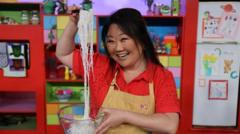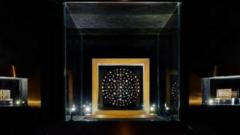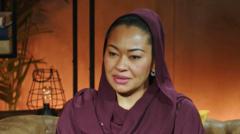Nagi Maehashi and Sally McKenney have accused TikTok influencer Brooke Bellamy of copying their recipes in her cookbook, leading to allegations of plagiarism and discussions about crediting original creators in the culinary world.
Recipe Controversy: Influencer Accused of Plagiarism by Established Authors

Recipe Controversy: Influencer Accused of Plagiarism by Established Authors
Australian influencer Brooke Bellamy faces accusations of copying recipes from renowned food writers, igniting a debate about originality in culinary content creation.
Two prominent cookbook authors have leveled accusations against Australian TikTok influencer Brooke Bellamy, asserting that her popular cookbook contains recipes bearing "word-for-word similarities" to their own creations. Nagi Maehashi, the founder of the renowned food website RecipeTin Eats, claims that one of her caramel slice recipes closely resembles one found in Bellamy’s best-selling book, Bake with Brooki. Furthermore, Maehashi highlighted similarities between her baklava recipe and Bellamy's, sharing a side-by-side comparison in a formal statement.
Bellamy, however, has firmly rejected these claims, defending her work and stating that her cookbook features "100 recipes I have created over many years." She argues that one recipe in question predates Maehashi's published version. Following Maehashi's allegations, US author Sally McKenney also stepped into the fray, accusing Bellamy of copying her vanilla cake recipe, which can be found in Bellamy's cookbook and on her YouTube channel.
Maehashi has contacted Bellamy's publisher, Penguin Random House Australia, resulting in what she described as efforts of "legal intimidation." She expressed feelings of exploitation, noting the absence of permission and credit for her recipes used in a commercially sold book. In response, both Bellamy and Penguin have denied any wrongdoing, stating that all recipes in the Bake with Brooki book were indeed created by Bellamy. Despite maintaining her innocence, Bellamy stated she is willing to remove the disputed recipes from future editions to avoid conflict.
The controversy has ignited a conversation on the dynamic nature of recipe development and originality, particularly in an age where culinary inspiration is abundant across various platforms. Both Maehashi and Bellamy's cookbooks have received nominations for the upcoming Australian Book Industry Awards, underscoring their prominence in the culinary landscape. The debate raises questions about the importance of crediting original creators in a fiercely competitive field where innovation is intertwined with collaboration.


















